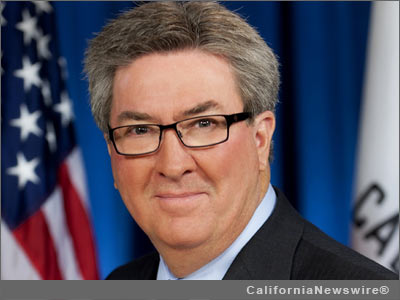SACRAMENTO, Calif. /California Newswire/ — On Wednesday, Assemblyman Ken Cooley chaired the first hearing of the Assembly Select Committee on Community and Neighborhood Development. The ten member, bi-partisan committee heard from policy and administrative experts who spoke about the impacts of suburban sprawl on our metropolitan areas, and funding needs to help revitalize our aging communities.

“As metropolitan areas grow, it’s important that we do not forget about the needs of our older communities, and help keep them desirable places to live that can attract jobs and private sector investment,” said Cooley. “We moved to our neighborhood because we liked what was there. Now, some of our older areas are faced with quality of life challenges that stand as barriers to community revitalization.”
During the hearing, Bill Fulton, Planning Director for the City of San Diego and past Mayor of Ventura, noted that infrastructure and amenities in communities that most people would consider newer are nearing 20 years old.
“State infrastructure bonds and redevelopment funds have helped aging communities improve themselves, but are becoming more difficult to get,” Fulton said. “Community facilities, like parks and libraries, need to meet certain expectations in order to make older communities desirable. Without funding to maintain and revitalize them, they often fall below that level of what the community wants.”
Juan Matute, Director of the UCLA Local Climate Change Initiative, highlighted the challenges older cities and first tier suburbs face with a greater need for community development funding and fewer tools to stay competitive with new neighborhood developments.
Matute presented a recent paper highlighting that financial tools in the local government toolkit have evolved across the last 40 years and concluding the tools currently in the toolkit have not kept up with today’s desire for more compact, less auto-dependent communities.
The loss of redevelopment agencies in California in 2012 removed a vital tool from local governments’ toolkit. Although some tools still remain—including general obligation bonds, infrastructure financing districts and assessment districts—local governments in California lack a dependable financing mechanism that can be consistently used for infill, infrastructure, and redevelopment.
“People want to see their neighborhoods improved, and aging communities are depending on us to figure out a solution to shape the next half-century of revitalization for established communities,” said Cooley. “I think we realize that not every tool is good for every community. We have to set politics aside and give California’s cities and counties the financing tools they need to attract private investors and spur the redevelopment that’s good for them.”
Other speakers during the hearing included: Jim Wunderman, Chief Executive Officer of the Bay Area Council; Sacramento County Executive Officer Brad Hudson; Richard Lyon, Senior Vice President of the California Building Industry Association; and Jeff Loux, Director of the Land Use and Natural Resource Program at UC Davis Extension.
Assemblyman Ken Cooley represents the 8th Assembly District which includes the communities of Arden-Arcade, Carmichael, Citrus Heights, Rancho Cordova, Rancho Murieta, Rosemont, Wilton and other portions of unincorporated Sacramento County.















